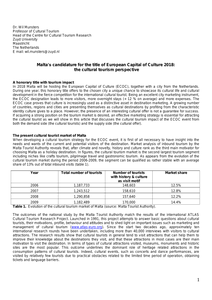From the 1960s, in several Western European countries folk music revivals took place. In The Netherlands, the folk music revival was heavily inspired by the folk music revival movements in the United States, the United Kingdom and Ireland, and later by the revivals in France and Flanders (Belgium) as well. Initially the repertoire played was mainly American, Anglo-Saxon and Irish, and only gradually attention turned to attempts of reviving Dutch song repertoire (see Koning 1975 for a contemporary analysis).An interesting part of the Dutch folk music revival was the Frisian folk music revival. In the province of Friesland the folk music movement was widespread and active, and at the same time immensely varied concerning repertoires used and meanings conveyed. The presentation will focus on the work of the Frisian-language folk group Irolt, active from 1975 to 1983 and at the time considered the leading Frisian folk group. Through studying their recordings, contemporary documents, and interviews carried out with the leader of the group years after the group disbanded, I try to gain insight in Irolt’s attempt at the – paradoxical – revival of a non-existing repertoire of folk-songs. I will combine Koning’s (1975) idea of `communality’ in folk revival movements combined with Hobsbawm’s (1983) concept of the invention of tradition and ideas about identity constructing going back to Barth (1969, 1994) to shed light on the processes at work and the resulting products, unveiling the hidden meanings of Irolt’s work in terms of a particular construction of Frisian identity.Paper presented at the 42nd ICTM World Conference, 11-17 July 2013, Shanghai, China
DOCUMENT
De kandidatuur van Malta als Europese Culturele hoofdstad in cultuurtoeristisch perspectief
DOCUMENT

Lower levels of news use are generally understood to be associated with less political engagement among citizens. But while some people simply have a low preference for news, others avoid the news intentionally. So far little is known about the relationship between active news avoidance and civic engagement in society, a void this study has set out to fill. Based on a four-wave general population panel survey in the Netherlands, conducted between April and July 2020 (N = 1,084) during a crisis situation, this research-in-brief investigates the development of news avoidance and pro-social civic engagement over time. Results suggest that higher news topic avoidance results in higher levels of civic engagement. The study discusses different explanations for why less news can mean more engagement.
DOCUMENT
